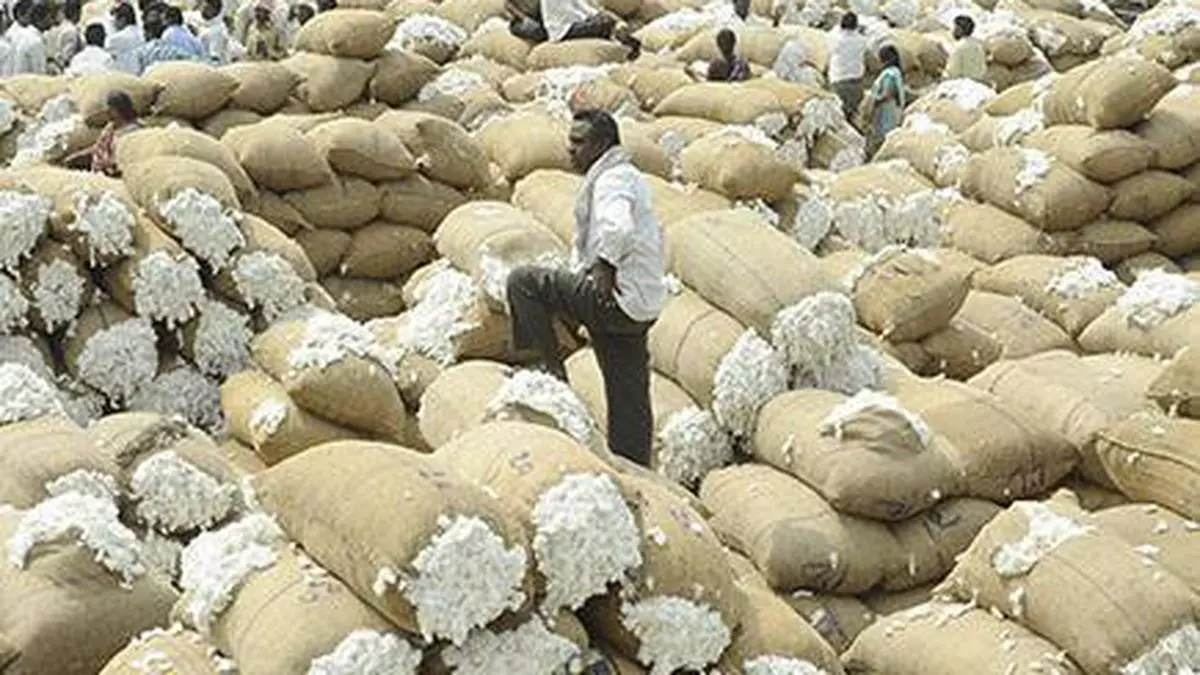CCI procures ₹900 crore worth cotton via MSP operations
The Cotton Corporation of India, the nodal agency for the government’s Minimum Support Price (MSP) operation for the natural fibre, has bought 2.5 lakh bales (of 170 kg each) worth ₹900 crore since start of season on October 1.
CCI enters the market whenever prices drop below the MSP fixed by the government. Cotton prices usually drop at the beginning of the season due to huge arrivals. Depending on the demand and supply scenario, it peaks between July and September when the arrival season comes to an end.
The government had fixed an MSP of ₹7,020 quintal for long staple cotton and ₹6,620 a quintal for medium staple.
Slack demand
Lalit Kumar Gupta, Chairman and Managing Director, CCI, said the cotton prices in 10 out of 11 cotton-growing States, except for Gujarat, have fallen below the MSP and CCI had to procure the produce from farmers.
The prices were lower due to depressed demand in both domestic and global markets due to the unexpected war and slowdown in the US economy, he said.
However, things are slowly settling down as there has been truce on the war front and concerns on the US economy is fading, he added.
Notwithstanding the economic developments, he said there is no limitation on CCI procurement and during the Covid pandemic CCI had procured cotton upto ₹65,000 crore. CCI offloads the cotton closer to end of the season when there is a shortage of supply.
Prices to firm up
Cotton prices are expected to firm up in coming weeks due to lower output estimate by the Cotton Association of India. In an estimate released last month, CAI had predicted output to be lowest in 15 years to 29.5 million bales against 31.8 million bales last year, and the government’s latest advance estimate of 32 million bales for the current season.
CAI expects yields to drop by 5-20 per cent across cotton-growing states owing to unfavourable weather conditions. Due to a severe attack of pink bollworm in north India, the crop size estimate has been reduced drastically from 6.2 million bales to 4 million.
